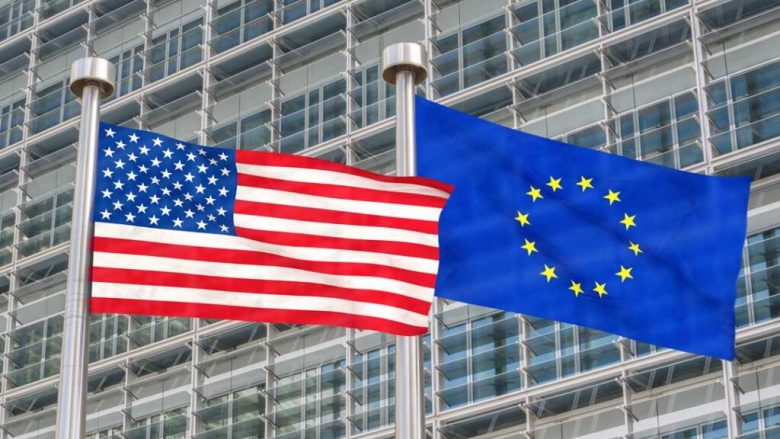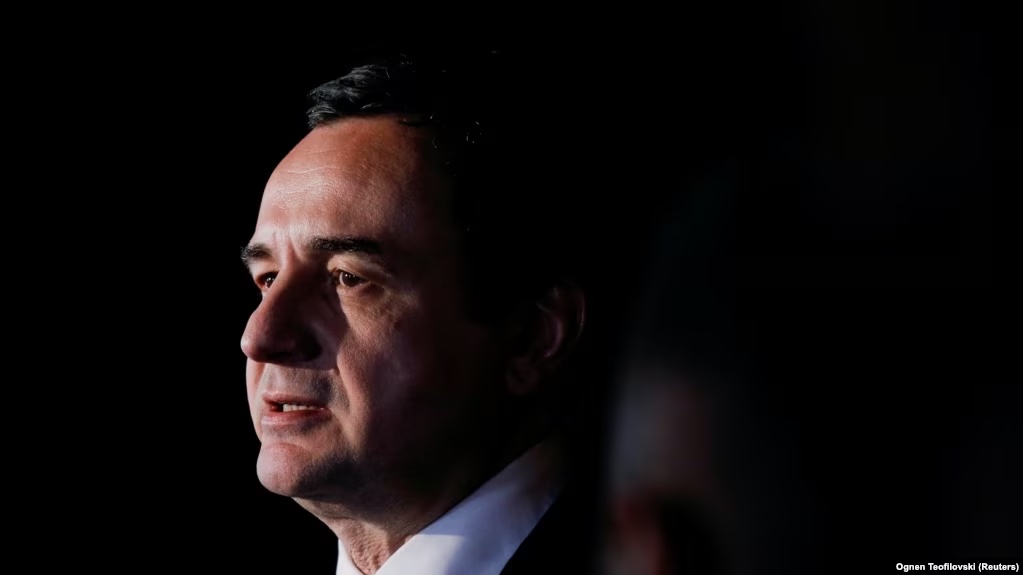Thursday, November 21st 2013

The grassroots protests that forced Tirana to reject a US request to host the destruction of Syria’s chemical arsenal have given Albanians a taste of direct democracy.
After a week of rallies across Albania, Prime Minister Edi Rama went before the nation on Friday and said he would turned down a request from Albania’s key ally to use the country as a base for the destruction of Syria’s discarded chemical weapons.
In a televised speech, Rama said it was “impossible for Albania to take part in this operation”. Thousands of protesters outside his office cheered the announcement.
In Albania’s long and tumultuous transition to democracy no prime minister had ever before refused such a direct request from Washington.
Even more unusually, Rama’s pledge, which conflicted with his earlier stance on the issue, came as a result of peaceful protests.
The US Ambassador, Alexander Arvizu, confirmed to an Albanian television channel on Thursday that President Barack Obama had made the request to Rama in writing – and had invited him to visit Washington next year.
The Albanian premier who took office only two months ago, initially made a case for accepting the request, underlining the strong partnership with the United States and Albania’s historical debt to its big ally.
“I am not saying that destroying chemical weapons is as easy as eating candy, but this is the hard part of being engaging side by side with the United States and NATO countries against the enemies of humanity,” Rama said on Friday.
Rama noted that Albania had received much more from this strategic relationship that it had given back.
“Without this partnership, [former Serbian leader] Slobodan Milosevic would be on the neck of the other half of our nation [in Kosovo] and we Albanians in Albania would not be part of NATO,” he added.
Albania’s refusal to allow Syria’s chemical weapons to be destroyed on its soil has now set back the efforts of the Obama administration and the international community to dismantle President’s Bashar Al Assad’s toxic arsenal.
Based on a UN Security Council resolution from September, Syria’s chemical stockpiles have to be removed from the country by January 2014, and destroyed before June.
The resolution came on the heels of a chemical attack on opposition-controlled suburbs of Damascus in August, which killed more than 1,700 people.
Under the threat of air strikes, Syria agreed to give up its chemical weapons stockpiles. It has declared that it has more than 1,000 tons of such weapons.
The Organization for the Prohibition of Chemical Weapons, OPCW, which in 2013 won the Nobel Peace Prize, has called for the weapons to be destroyed outside Syria, which is in the midst of a civil war that so far has claimed more than 100,000 lives.
However, no country had volunteered to take in the chemical stockpile, and, following Albania’s refusal, a number of European states have also rejected the request.
Although Albania is a majority Muslim country, it is strongly pro-American. In the past, Tirana has been often more than willing to undertake diplomatic chores on Washington’s request.
In 2003, it was the third country in the world to join President George Bush’s “coalition of the willing”, after the United States and Britain, to invade Iraq.
In 2007, Albania agreed to take in ethnic Uighur ex-prisoners released from Guantanamo Bay that the United States could not repatriate to China.
Last year, it also offered asylum to 210 members of the Mujahedin Khalq, an Iranian dissident group long confined to a camp in Iraq.
Albania destroyed its own small arsenal chemical weapons stockpiles in 2007 with US help, but the weapons left behind nearly a hundred tons of hazardous waste.
Jeffry Lewis, a chemical weapons expert at the James Martin Center for Nonproliferation Studies in California, told Balkan Insight that the choice of Albania as a host country did not have any particular advantages for the OPCW.
“Any place is ok, there aren’t any advantages to Albania,” Lewis said. “The only advantage [for Albania itself] would be the political momentum to build the hazardous waste storage, not only for the chemical weapons stockpiles but also for other hazardous waste,” Lewis said.
Albania has nearly two-dozen environmental hot-spots with hazardous waste, legacy of its attempt to rapidly industrialize during the communist regime.
The US request to host Syria’s chemical weapons stockpile angered public opinion, which feared that Albania was being turned into an international dustbin. Many felt their pro-American feelings were being taken for granted.
A patchwork group of activists, environmentalist and students organized through social networks rallied against the weapons deal, branding smart slogans and posing in gas masks to highlight their opposition.
Protests peaked on Wednesday morning when a small number of students started a sit-in front of the Prime Minister’s office, which grew larger by the hour.
Other rallies in towns and cities across the country followed until the government caved in two days later and finally said “No.”
The apolitical rallies were something that Albania had never seen before.
An attempt on Thursday by former Prime Minister Sali Berisha and the opposition Democratic Party leader Lulzim Basha to highjack the protests was a failure; their attempted interference only galvanized the protesters even more.
When Basha and Berisha tried to join the students in front of the government’s office, the dismayed protesters told them to leave, hurling insults and giving them the thumbs down.
“This is not your cause – No to politicians,” the activists said over loudspeakers.
Gjergj Erebara, editor of the Tirana daily Shqip, says the protests were defined by the use of social networks to organize them, and by the activism of a new generation that has grown up since the fall of the Communist regime.
“Facebook in this case turned out a more powerful place for debate, drawing different voices, like young people and professionals, who are shunned by the mainstream media,” he said.
According to Erebara, this success, which was achieved mainly by young people, not by what is conventionally called civil society, represents a major step forward for direct democracy in Albania.
“A taboo was broken in our society, because for the first time we have seen that street protests can stop something that the government favours, but which most Albanians are against,” he concluded./balkaninsight/




